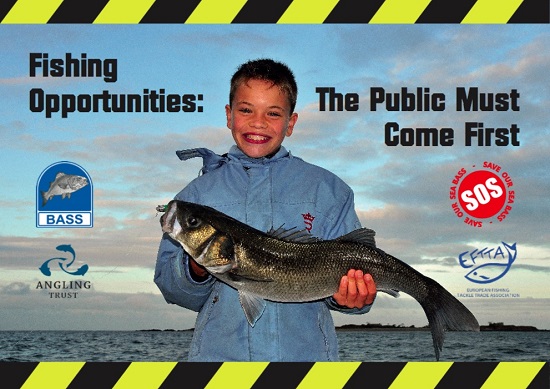Sea angling was high on the agenda in last week’s fishing industry debate in the House of Commons. MPs from both sides of the House made sure anglers and the businesses that they support were well represented in the annual debate.
Fisheries Minister George Eustice confirmed a desire to reduce commercial fishing limits for bass and create the headroom for more leeway for recreational anglers in 2018 when he attends the EU Fisheries Council negotiations currently taking place in Brussels.
Much of the attention was centred around the European Commission’s proposals to ban anglers from fishing for bass for the first six months of 2018 and from keeping a single bass to eat for the whole of the year.
Sheryll Murray, MP for South East Cornwall, who tabled the debate, said: “It appears that, if implemented, the European Commission’s proposal for 2018 will prohibit a recreational hook-and-line bass angler from taking a single bass for the entire year for personal or family consumption. That is unacceptable and I ask the Minister to make representations at the Council of Ministers in support of those recreational fishers.”
Former fisheries minister, Ben Bradshaw, MP for Exeter, called on the Minister “to make bass a recreational stock, as Ireland has done with huge success” while Charles Walker, MP for Broxbourne, said: “It is simply madness to suggest that someone in a West End restaurant can sit down to eat wild bass caught by a commercial fisherman but that one of my Hon. Friend’s constituents, or one of my constituents, on a day out at the beach cannot keep a single fish that they catch off the beach or on a boat.”
Neil Parish MP, chairman of the Commons’ Environment Food and Rural Affairs (EFRA) Sub-Committee, said he would look at the suggestion to make bass a recreational species and added: “There is a real place for recreational fishing, just as there is also very much a place for professional fishing.”
Madeleine Moon, MP for Bridgend, said that in 2012, the Department for Environment, Food and Rural Affairs estimated that the value of recreational fishing tio coastal towns was £2 billion a year, adding: “My angling shops, my coastal bed and breakfasts and my hotels all benefit from bass fishing but the moratorium on anglers taking sea bass is a disaster for coastal towns.”
In relation to the measures being proposed for bass in 2018, Scott Mann, MP for North Cornwall, said: “If the proposals are truly meant for conservation, the angler is once again being penalised by comparison with the hook-and-line commercial fisheries that can effectively land four tonnes of catch each. Sport fishing in the UK is a lucrative and growing business. Businesses will go to the wall if these proposals are implemented.
“The impact of recreational sea angling on bass stocks is negligible, which demonstrates that the problem does not rest with the sea angler. That is why I support the campaign of the Angling Trust, the Save Our Sea Bass campaign and the European Anglers Alliance to stop these completely unfair and unenforceable proposals. Banning the public from fishing for a species recreationally while letting commercial hook-and-line fisheries continue is unjust and cannot be allowed.
“The Minister should fight for anglers and oppose these ridiculous measures, which would sink a fine pursuit and a fledgling industry. There are thousands of anglers out there who are looking for his support this year.”
Commenting on bass and the UK’s position in agreeing measures with other EU countries for 2018, the Secretary of State for Fisheries, George Eustice MP, said: “We argued last year that there should be a lower catch limit for the hook-and-line commercial fishermen to create the headroom to give more leeway for recreational anglers. I will make a similar argument this year, but the scientific evidence has not been benchmarked to take account of the measures that have already been introduced, so the right thing to do might be to review the bass situation properly in March and we will point that out.”
David Mitchell, Head of Marine at the Angling Trust, was present for the debate and said: “It is very encouraging to get such strong support for angling in the House of Commons and we thank all those MPs who spoke up for members of the public who fish recreationally and those business owners who rely on them being allowed to continue to go fishing. We will be following up with the Chairman of the EFRA Committee, Mr Parish, on looking at the evidence in support of designating bass a recreational species in the UK.”
David Curtis, founder of Save Our Sea Bass, said: “Angling is the most sustainable form of bass fishing and delivers the greatest social and economic benefits by far. So long as there are bass landings available, these should be allocated first to the public, who own the bass fishery. It was very encouraging to hear a number of MPs robustly supporting the public’s right to catch and land bass and recognising the vital economic contribution that bass angling makes to small coastal communities.”









